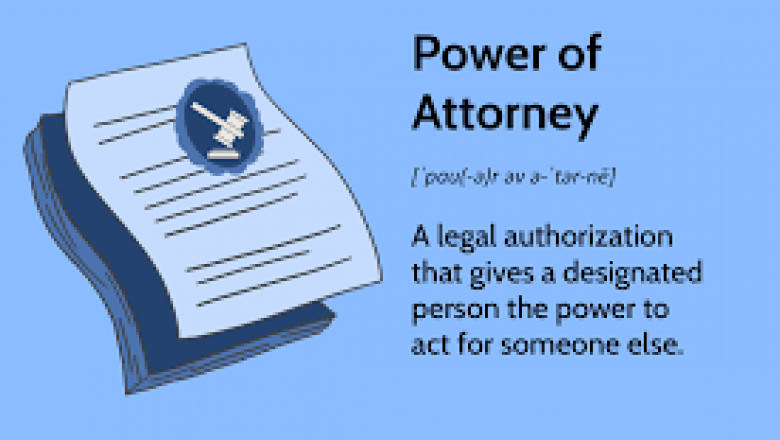views
Joint Ownership: Sharing Property Rights
Joint ownership occurs when two or more individuals hold rights over a single property. Each co-owner has a legal share, which may or may not be equal depending on the type of ownership agreement.
Types of Joint Ownership in India
-
Joint Tenancy
In this arrangement, all owners have equal ownership rights. The key feature is the right of survivorship, meaning if one owner passes away, their share automatically transfers to the surviving owner(s), bypassing inheritance laws. -
Tenancy in Common
Here, owners can hold unequal shares in the property. There is no right of survivorship, and each owner’s share can be passed on to heirs through a will or succession law. -
Coparcenary Ownership
Specific to Hindu Undivided Families (HUFs), coparcenary includes male members (and daughters after the 2005 amendment) of the family as joint legal heirs to ancestral property. It follows a distinct set of succession rules. -
Community Ownership
This is common among spouses where the property is jointly owned without clearly defined shares unless specified in legal documentation. In many cases, this is for financial convenience or tax benefits.
Benefits of Joint Ownership
-
Ease in Loan Approval: Co-ownership can help in availing larger home loans based on the combined incomes of the owners.
-
Tax Benefits: Both co-owners can claim tax deductions on home loan interest and principal repayment under Sections 80C and 24(b) of the Income Tax Act.
-
Succession Planning: Joint tenancy ensures smooth transfer of property without going through legal disputes or probate.
-
Shared Responsibility: Maintenance, repairs, and financial obligations can be divided among co-owners.
Points to Consider in Joint Ownership
-
Clearly mention ownership shares in the property deed.
-
Have mutual agreements on selling, leasing, or modifying the property.
-
Ensure clarity on financial contributions and liabilities.
Disputes can arise if roles and responsibilities are not properly defined. Hence, legal agreements and open communication among co-owners are crucial.
Power of Attorney: Delegating Legal Authority
A Power of Attorney (PoA) is a legal document through which one person (the principal) authorizes another person (the agent or attorney) to act on their behalf in legal, financial, or property matters.
Types of Power of Attorney
-
General Power of Attorney (GPA):
The agent is given broad powers to act on behalf of the principal, including buying, selling, managing, or renting out property. -
Special Power of Attorney (SPA):
The authority is limited to specific acts or transactions, such as signing sale deeds or collecting rent. -
Durable PoA:
This remains valid even if the principal becomes mentally incapacitated, though it’s more commonly used in medical or personal matters in Western countries.
Use of PoA in Real Estate
Power of Attorney is widely used in real estate for:
-
NRIs managing property in India
-
Elderly individuals delegating property dealings to trusted persons
-
Buyers and sellers who cannot be physically present during transactions
-
Handling legal formalities like registration, mutation, or litigation
Legal Considerations for PoA
-
A PoA related to immovable property must be registered with the local Sub-Registrar.
-
PoAs executed outside India should be notarized and consularized or apostilled, and later registered in India.
-
Abuse of PoA can lead to legal and financial risks, so it should only be given to trustworthy individuals.
The Supreme Court of India has ruled that property cannot be legally transferred through GPA alone. A sale deed is essential for ownership transfer, although GPA can still be used for managing or leasing property.
Challenges and Precautions
-
Misuse of Authority: A broad GPA can be misused, resulting in financial or legal trouble for the principal.
-
Revocation Issues: Once given, a PoA must be legally revoked through a deed of revocation if not required anymore.
-
Limited Recognition in Certain Cases: Banks and financial institutions may not always accept a GPA holder for mortgage or loan processing.
Conclusion
Joint ownership and power of attorney are powerful legal tools in real estate, offering flexibility, control, and shared responsibility. While joint ownership ensures clarity in property rights and succession, a well-drafted PoA allows efficient property management without physical presence. However, both require careful documentation and legal compliance to prevent misuse or disputes.
As real estate becomes more complex, platforms like HexaHome are empowering property buyers and owners with tools to manage joint ownership and legal documents more transparently. At the backend, Hexadecimal Software is developing secure, digital solutions for managing ownership records, PoA tracking, and document automation—helping users navigate real estate transactions with clarity and confidence. Together, they are driving a smarter, safer, and legally sound property ecosystem.














Comments
0 comment